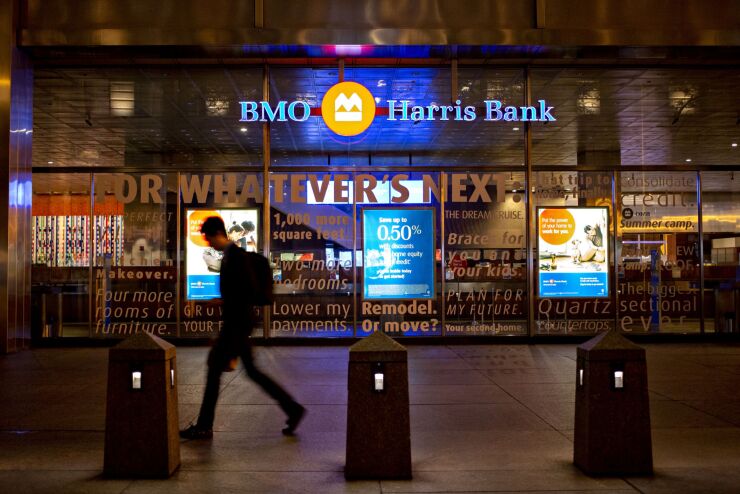
A federal appeals panel has overturned
Following the decision Thursday, Toronto-based BMO said that it expects to reverse a previously recorded provision of 1.19 billion Canadian dollars, resulting in an expected after-tax recovery of CA$875 million in the fourth quarter.
"We are very pleased with the decision of the United States Court of Appeals for the 8th Circuit," a company spokesperson said in a press release.
The case grew out of a Ponzi scheme that Thomas J. Petters operated for more than a decade until he was arrested in 2008. Two years later, Petters was sentenced to 50 years in prison in connection with what the Department of Justice called a $3.7 billion fraud.
Under the scheme, money went through an account that Petters' company had at National City Bank and later at successor bank Marshall & Ilsley, which was acquired by BMO in 2011.
The lawsuit against BMO's U.S. banking subsidiary, BMO Harris Bank, was brought by the trustee of the bankruptcy estate of the company that ran the Ponzi scheme.
The plaintiff alleged that both National City and Marshall & Ilsley failed to respond to irregularities, facilitating and legitimizing the scheme. For example, Marshall & Ilsley employees ignored money-laundering alerts and allowed the company that operated the Ponzi scheme to overdraft millions of dollars, according to the plaintiff.
The situation for BMO worsened in 2022 when the case went to trial in Minnesota. A federal judge told jurors that they could, but were not required to,
The jury ultimately ordered BMO Harris to pay more than $550 million — a number that was expected to climb to more than $1 billion once prejudgment interest was included, though the bank said that it was entitled to recover about 21% of the total.
Following the jury's verdict, lawyers for the plaintiff described it as a victory for the trust that was seeking to recover money for people who lost money in the Ponzi scheme. This week, after the appeals court overturned the verdict, the plaintiff's lawyers did not immediately respond to requests for comment.
In reversing the jury's verdict, a three-judge panel of the 8th Circuit relied on a legal doctrine that bars plaintiffs from recovering damages for wrongs they participated in themselves.
BMO Harris argued in its appeal that under that legal doctrine, Petters' company could not recover damages because the company that operated the Ponzi scheme was a wrongdoer of equal or greater fault than the bank. The outcome of the appeal essentially hinged on whether the bankruptcy trustee should be treated as a stand-in for Petters' company.
The appeals court panel answered that question in the affirmative.
"A bankruptcy trustee steps into the shoes of the debtor and is subject to any defenses that could be raised against the debtor," Chief Judge Steven Colloton wrote for the panel.
Colloton also wrote that Thursday's opinion is consistent with a 2nd Circuit Court of Appeals decision involving Bernard Madoff's massive Ponzi scheme.
In the Madoff case, the 2nd Circuit held that the same legal doctrine cited Thursday by the 8th Circuit barred a trustee from asserting claims against financial institutions, including JPMorgan Chase and HSBC.
In the BMO litigation, it's possible that the three-judge appeals panel won't have the last word. The Canadian bank noted in its press release Thursday that the plaintiff has the right to request a rehearing of the decision before the 8th Circuit.






